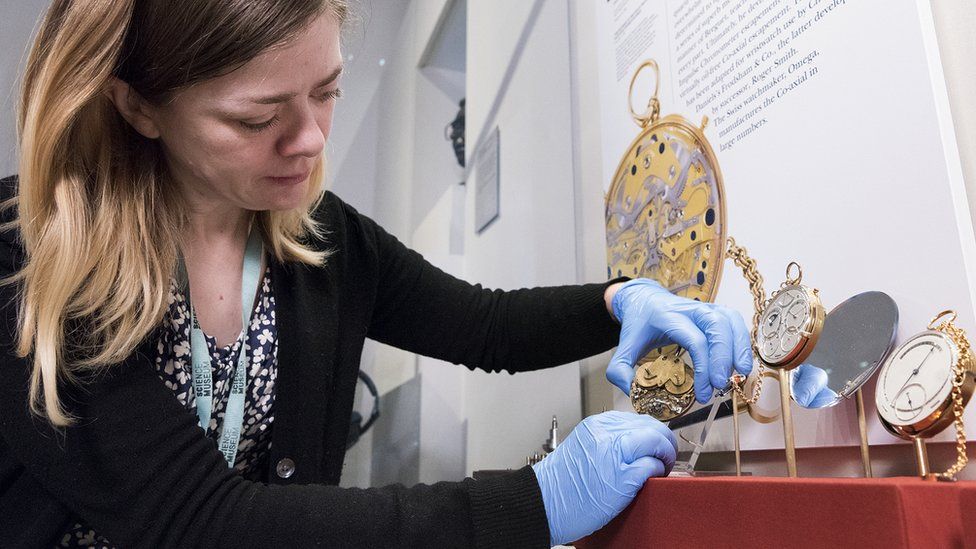28 minutes ago
About sharing
The clocks going back on Sunday happens while most us are enjoying an extra hour in bed – all neatly taken care of by our smartphones and devices.
But at one of the UK’s largest collections of timepieces, the change – which sees clocks go back an hour at 02:00 – is not as simple.
The Clockmakers’ Museum holds about 90 “complex and delicate” clocks, most of which have to be manually wound back.
Curator Anna Rolls said changing the clocks back is a “one-man job” which usually happens in the evening after closing time and takes up to three hours to complete.
“The handles of the clocks get damaged” if moved backwards, so they have to move them forwards 23 hours which can be a “challenging” job if done wrong, she told BBC News.
Sometimes clocks are too big to be easily changed by hand.
The big clock on King Cross station’s Platform 8 is known as the Harry Potter clock by fans of the magical series – but once upon a time, changing it was far from wizardly.
Jon Burden, who has worked at the station for 25 years, said staff used to turn the power to the clock off at 11:00, wait for an hour, and switch it back on.
He admitted the method “confused the customers sometimes” – but thankfully, the process is now automated after the clock’s refurbishment in 2012.
When do the clocks go back?
This autumn, the clocks go back by one hour at 02:00 on Sunday 29 October.
The clocks are moving from British Summer Time (BST) – also known as Daylight Saving Time (DST) or GMT+1 – to Greenwich Mean Time (GMT).
Why do the clocks change?
Well, according to BBC Bitesize, “during World War One, the German army turned the clocks forward as a way of conserving energy. Many (but not all) European governments followed suit shortly afterwards – including the UK.”
Why do the clocks go back on the weekend?
Royal Museums Greenwich said: “This pattern of change was chosen because it occurs on a Saturday night/Sunday morning and would therefore be the least disruptive option for schools and businesses.”
For some clocks, though, no change is required. The famous Shepherd Gate Clock at the Greenwich Royal Observatory was the first clock ever to show GMT directly to the public.
Conservator Francis Brodie is an expert in horology – the science of clocks, watches and timekeepers.
He said the Shepherd Gate Clock is kept at Greenwich Mean Time (GMT) all year round as it offers a more “authentic atmosphere” for visitors experiencing the story of time.
The UK will be in GMT until 31 March 2024.
